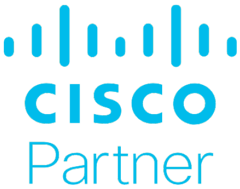Should you fund your IT through Capex or Opex?
Posted on: 19th June 2023
Before cloud services became widely adopted, businesses traditionally used a capital expenditure (Capex) model to fund their ICT infrastructure, but the last few years have seen a huge increase in classifying expenditure as operational expenditure (Opex).
Our Chief Finance Officer Nicola Johns takes a look at the trend, and what it means for businesses.
Capex and Opex are treated very differently for tax purposes and it is vital to make the right choice if you are to support business growth and free up cash to invest in other areas.
Capex is an upfront cost and usually involves a substantial sum used to buy assets such as hardware and software that will depreciate in value over their lifespan. This could be anything from a couple of years to as much as 10 years. A Capex deduction must be amortised over the asset’s lifetime, making it a complex accounting model that needs accurate budgeting and cost estimation. It often results in a longer timescales for budget approval, due to the amount of money required. It’s not ideal for start ups who need to invest in the latest technology, or for companies going through cashflow issues.
Opex refers to operational expenses such as salaries, rent, vehicles, and cost of sale. Funding IT through this route means there is no need to set aside a big chunk of money, it spreads the cost over a longer period and releases cash that can be used for revenue-generating areas such as research and product development.
As an ongoing cost it becomes part of your profit and loss and so, although tax deductible in one sense, these costs reduce your EBITDA level. Opex gives the flexibility to scale the operation up or down as business needs and goals change, and new technologies become available. It also means you are only paying for what you use, adding or removing services or hardware as and when you need them.
The growth explosion in ‘everything as a service’, where IT is delivered just like any other business support service has prompted the shift towards Opex funding, and classifying IT as an operational rather than capital cost. Much of this is thanks to what is seen as a more flexible and potentially money saving route that lowers upfront costs and improves business agility.
Making the right funding choice requires a delicate balance and thoughtful approach, this is not a ‘one size fits all’ situation. For instance, enterprise software licenses qualify as Capex, while maintenance costs can be Opex. A cloud infrastructure can be considered Capex if you make one big purchase of assets, but could also count as Opex if you opt for a monthly cloud based subscription.
Deciding which model is right for you needs an expert ally who can help you create a finance solution that fits with your cashflow and business goals.
We’re not just experts in creating and delivering infrastructure and secure services, we also have decades of experience helping clients choose the wisest funding option for their needs.
We help our customers to make the right decision and structure their deal accordingly to fit with their own strategy and growth plans. Sometimes the answer lies in the middle, with a combination of Capex and Opex. We can even help if you are considering a new technology partner, by arranging for deferred payments during your transition period to minimise dual running costs.
Our flexible approach gives clients the outcome that fits with their business model, creates the business case, and ultimately helps to make their business more successful through technology.
If you are looking at your next big IT investment or transition to the cloud, get in touch to talk to our ICT funding experts, and make sure you make the right move to help your business grow through technology.








